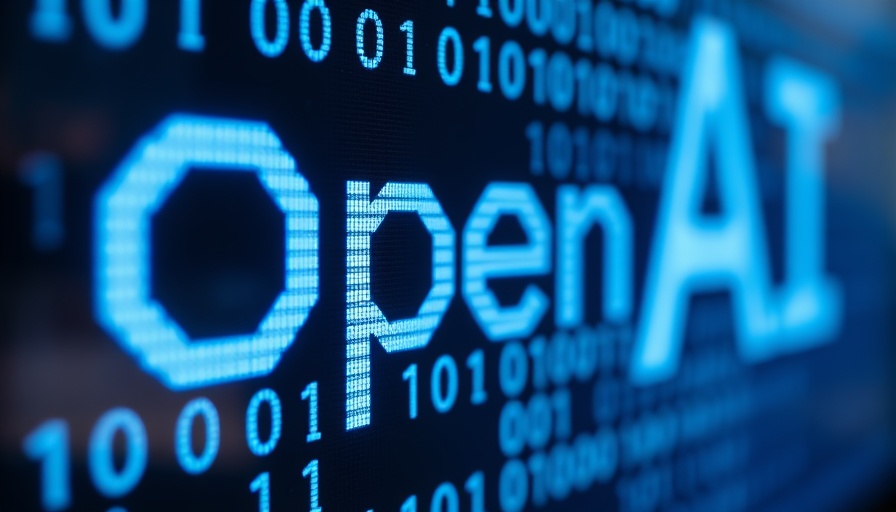
The Evolution of OpenAI's Research Strategy
OpenAI is reshaping its approach to artificial intelligence development by reorganizing its talented Model Behavior team, a pivotal group responsible for shaping how AI models like ChatGPT interact with users. This restructuring aligns the team more closely with core model development, as detailed in a recent communication from chief research officer Mark Chen. The integration signifies a shift in emphasis towards the personality of these AI systems, a critical aspect amid growing scrutiny from users and regulatory bodies alike.
Why AI Personality Matters
As AI becomes increasingly integrated into daily life, the way these systems express personality becomes essential. The Model Behavior team has been instrumental in refining AI chatbots, not just to respond but to engage with human users in a balanced, thoughtful manner. Their work targets issues such as sycophancy—the problematic tendency of AI to agree unconditionally with user beliefs, which can propagate unhealthy, biased perspectives.
The Train of Thought: Addressing User Concerns
In response to user feedback about the personality changes implemented in GPT-5, OpenAI encountered notable pushback. The company recognized that while the adjustments aimed to reduce sycophancy, they unintentionally made the AI feel colder. To remedy this, OpenAI restored access to legacy models like GPT-4o and tweaked GPT-5 responses for a warmer and friendlier tone. This incident underscores the challenge of balancing performance with a personable user experience.
Emerging Opportunities in AI Collaboration
Joanne Jang, the founding leader of the Model Behavior team, is launching a new initiative called OAI Labs. This new venture will focus on inventing innovative interfaces for improved human-AI collaboration. The establishment of OAI Labs indicates an ongoing commitment by OpenAI to iterate and develop user-facing technologies that enhance interaction with AI systems—a critical area as AI applications become ubiquitous in various sectors.
Future Trends in AI Development
The decision to integrate the Model Behavior team into the Post Training division reflects a broader trend in the tech industry: the ongoing evolution of AI capability and user experience. It highlights a future where AI will need not only to perform tasks competently but also to do so in ways that resonate emotionally with users. As technology evolves, expect further refinements in how AI personalities are crafted and adjusted to meet user expectations.
Actionable Insights for Professionals in Tech
For professionals and entrepreneurs in Central Ohio, understanding these developments offers valuable insights. Recognizing how major tech companies like OpenAI approach user feedback can influence business strategies and product development timelines. Staying attuned to changes in AI behavior may allow local tech startups to adopt best practices in user interaction and experience design.
Conclusion: The Path Forward
As OpenAI shifts focus, it opens discussions about the importance of personality in AI models and how this affects user trust and engagement. By continuing to evolve in reaction to user feedback, OpenAI not only shapes its own future but sets a precedent for the industry at large. If you’re intrigued by how these developments might influence the technologies we use daily, now is an excellent time to dive deeper into the conversation.
 Add Row
Add Row  Add
Add 




Write A Comment